The Gift of South Dakota
Subscriptions to South Dakota Magazine make great gifts!
Subscribe today — 1 year (6 issues) is just $29!
Stranded in Quinn
Dec 18, 2013
It was right before the blizzard of 1949 when I began my trip back to school after Christmas break. At the time I was a graduate student in Logan, Utah visiting my parents in Crooks for the holidays. I started my trip back to Logan in a convertible stuffed with seven people. The weather was cloudy and wintry, but there was no doubt we were facing a major winter storm. Eventually, the ground blizzard combined with the darkness slowed us to a crawl.
After about an hour we drove to a nearby ranch house hoping to warm up. The rancher's wife told us that we were only about a mile from town so we started out again. I rode with my head out the window telling the driver where to turn because the car's heater couldn't keep up with the ice forming on the windshield.
Later a large cattle truck passed, giving us hope that we could go on, but it turned into the tiny town of Quinn and we followed it in.
On the edge of town there was a small six-unit motel. Usually closed in the winter, the owner opened it up to accommodate stranded travelers. The motel was already full so we were sent to the cafe where there were more refugees from the storm like us.
Many local families took in those who were stranded. Jackson Good, one of the seven in the convertible, and I, being single, were sent to the school dormitory, where we could stay for $2 a night. The first night we stayed in a warm room right off the kitchen. The remaining nights we were in the boys’ room, a cavernous place with several beds. The caretakers had a fire going for us in the evening, but no extra wood was to be seen so we pushed one bed as close to the stove as we dared and piled on a lot of quilts. The fire was always out by morning so we would get up and get to the cafe as quickly as possible.
The next three mornings the wind was relentless and the temperature was well below zero. It's a good thing we never heard of wind chill or we would have never ventured outside. Drifts six to eight feet tall were common. One truck, stuck crossways in the street, was almost covered with snow. The café, which stayed open throughout the storm, became a center of activity for locals and the stranded alike. Coffee was always available and there were always a few people around.
The local people went out of their way to make life tolerable for their guests. The cafe opened charge accounts for us and the bank cashed checks with few questions asked. As I had left most of my money in Logan, Jackson cashed a check and loaned me $20, on which I managed to get by.
Like the cafe, the saloon next door didn't close. A poker game started Sunday night and was still going six days later. If you bellied up to the bar you could get "soaked" without taking a drink. Snow was blowing into the attic, melting and dripping through a seam directly above the bar. Each day the ceiling hung a little lower from the moisture damage.
One night a larger group of people gathered at the cafe and people showed off their talents by lamp light. A local man played tunes on the saw. One Colorado man strummed his guitar and a West Virginian showed us how to clog dance. Community singing drowned out the storm and lifted our spirits a little.
Our outlook improved on Thursday when the wind shifted from the south. Frazzled nerves began to heal. Some highly motivated people set out on foot along the railroad tracks for Wall, six miles to the west. Late in the day they returned with news that we were a lot better off than those stranded in Wall. Some travelers had spent most of their time on a bus.
One of the residents asked for help finding his father-in-law, who had left town late Sunday night heading for his ranch several miles north. After days spent indoors, some of us thought this would be a great way to get out and do something. We loaded his Mercury with shovels and headed north.
We shoveled snow, pushed the car through and drove full-speed into drifts. Hours later we were four miles north of town and the road was still drifted across as high as the fences. Getting back to town was easier, but it took us until after dark. We all felt good about helping with the search, but we did not find the man's father-in-law. I never did hear if he was ever located.
Friday was a bad day. Nerves which had healed frazzled again because the snowplows had still failed to arrive. One carload of people tried to leave. We watched them attempt to drive to the highway but they got stuck three feet into the first drift they encountered.
Saturday the plow from the east met up with the plow from the west at a big drift just outside of town. We were free to leave. After profusely thanking the good people of Quinn and settling our debts, we joined the caravan going west. Slowly we made our way to Rapid City. The plows had not been able to open the road through some of the road cuts so they plowed trails through the fields. When we detoured through the fields we realized our six-day inconvenience was nothing compared to the devastating losses suffered by ranchers. Some of the thousands of cattle killed by the storm littered the fields, many on their backs with their feet sticking straight up.
We who were Utah-bound stayed in Rapid City because the wind closed the roads through the Hills again. The storm that brought all the snow to South Dakota made the entire trip to Logan difficult, but we eventually arrived.
A couple years later I visited Quinn and stopped at the cafe. A list of people stranded in Quinn was on the wall. The owner said several people had either stopped in or written.
Since Interstate 90 was built, Quinn is just a name on an exit sign to most people, but not to those of us who were stranded there in 1949. In March of 1994, my wife and I left the highway to visit Quinn. As to be expected, many changes were evident. The motel, cafe, saloon and dormitory were gone. The water tower was all I recognized.
Memories of an unforgettable six days are all that remain.
Editor's Note: John M. Thorson was living in Colorado Springs, Colorado when he shared this wintry memory in our Jan/Feb 1995 issue. To order a copy or to subscribe, call 1-800-456-5117.


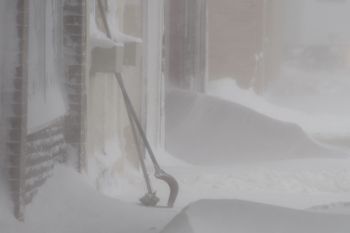
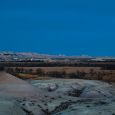
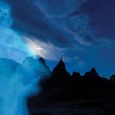
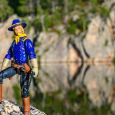
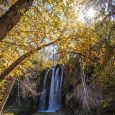
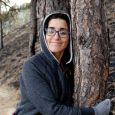
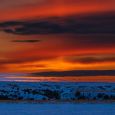
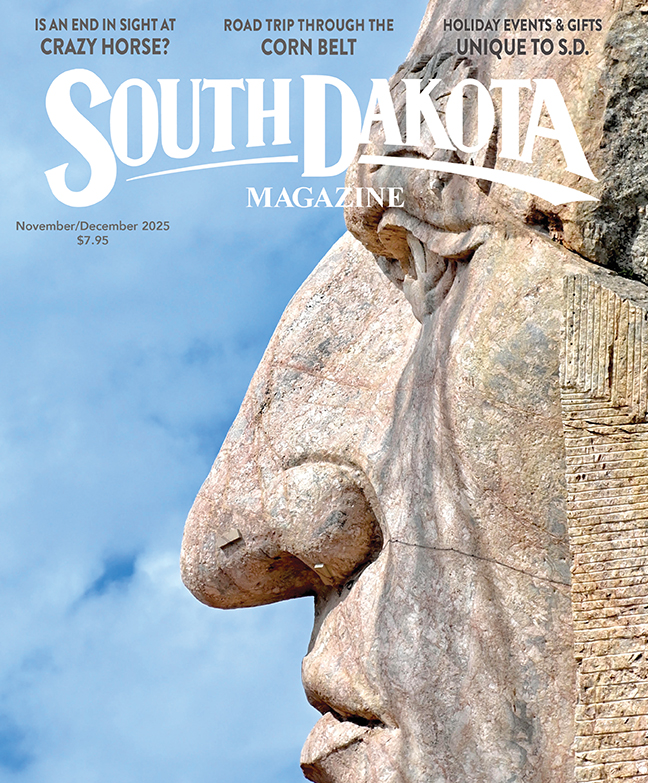
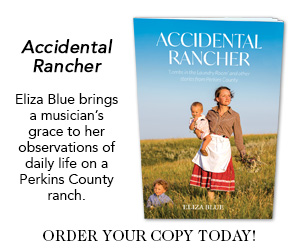
Comments